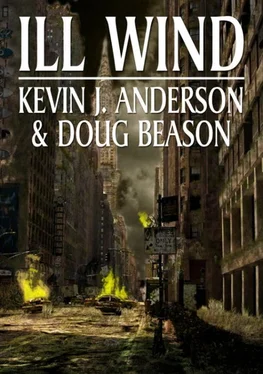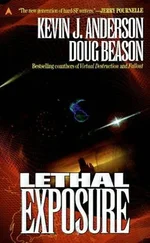In the late-morning heat Lance was already sweaty and exhausted. His clothes dragged on him. Back at the Air Force Base, they had outfitted him with a uniform the right size, void of rank insignia. The uniform fit well at first, but now it felt as if every thread and every seam found a way to chafe his skin. He was thirsty, he was hungry, and he was afraid to complain.
Lance fell into a routine of just walking. Every fifty-five minutes the call would come down the ranks to “Take Five!”, and Lance would slump against his backpack. He tried to conserve energy, but how could he recharge an hour’s worth of walking in only five minutes? It reminded him of the time he had tried to hike Old Ragtop mountain in the Appalachians, not far from Washington, D.C. He had been forced to turn back after only an hour. But there was no turning back, here.
Sergeant Morris came back and chided him. “Keep standing during your break. Otherwise you’ll tighten up.” He ignored her advice and sat panting.
Distances were deceptive out in the desert. The troops seemed to hike forever, yet they made no progress. Mountains on the horizon shimmered like a milestone to reach by nightfall, yet after a day of hiking the haze-blue mounds looked no closer. Lance tried setting near-term goals instead, looking at a scraggly mesquite or a cluster of rocks not too far away.
In the first hard day, Lance again made the mistake of thinking about his wife and two daughters, stranded back east. In his job at the Department of Energy, Lance had always spent too much time traveling. He rarely spent more than two-thirds of a month with his family, and he hadn’t thought anything when he left home to visit Lockwood’s smallsat demonstration or to attend the tech-transfer ceremony at Kirtland.
He hadn’t seen his wife or daughters since. In fact, with the phone lines breaking down early in the crisis, he had only managed to speak to them twice. And all they had talked about were how bad things were getting… little Lisa had cried, and it made things even worse.
Since that time, Bayclock had carved himself a position as military dictator in New Mexico; Jeffrey Mayeaux was acting president of the United States. And Lance was in the middle of an endless trek across a godforsaken parched wilderness.
He smiled with cracked lips; he couldn’t wait to get the White Sands antenna farm up and running under his control—so they could start restoring modern conveniences, like a humidifier.
* * *
By afternoon on the sixth day, they approached a small Native American pueblo. A cluster of rickety house trailers, cabins, and a general store stood like a careless pile of refuse at the intersection of a narrow pot-holed road and a winding gravel path that led into the mountains.
General Bayclock raised his hand for attention and swiveled around on his gelding so he could shout back at his troops. “We’ll re-provision here,” he said. “It’ll count as a rest break. Take no more than half an hour.”
The pueblo seemed to have more buildings than inhabitants. Behind each cluttered shack, children and old women came from small gardens of beans, chiles, and corn to watch the soldiers. Lance saw no adult men. Were they out hunting ? Chickens clucked by, pecking at weeds and insects. A dog barked and scattered the chickens.
Two small black-haired children, naked and covered with dust, played in the street. Even before the petroplague, this place must have seen little traffic. Pickup trucks and gutted cars were scattered randomly between house trailers. Lance had no idea if these vehicles were also victims of the plague, or if they had fallen into decay long before.
Everyone in the pueblo stood motionless as the contingent approached. A stocky, matronly woman stepped out of the general store and held onto one of the support beams on the wooden porch.
Bayclock rode directly up to her. “We need food and water, Ma’am. Enough for a hundred men.”
The woman stared at the general. She looked hard and weathered, like a schoolteacher Lance once had. Even in the summer heat she wore a red flannel shirt and didn’t seem to be sweating at all. “You’re welcome to water at the well,” she said, gesturing to a community pump near one of the empty house trailers. “But we have no food to spare.”
Bayclock’s face darkened, as if a sudden winter storm crossed his features. “Nevertheless, you’ll provide what we need.”
Other people from the pueblo began approaching. The woman crossed her arms over her chest. “And if we refuse?”
Bayclock scowled down at her from his tall black horse. He shifted as if in a conscious effort to make his general’s stars glitter in the sun. “I’m invoking eminent domain, requisitioning supplies. My authority comes directly from the President of the United States. It’s against the law to refuse.”
The woman raised her eyebrows. She stepped off the porch of the general store into the full sunlight. “Is there a United States anymore?”
Lance cringed. Bayclock glared. The general gestured to the front row of footsoldiers. “You men, take sufficient supplies to carry on our march. Do it now.”
Several pueblo women left their gardens and stepped onto the porch of the general store. A young teenaged boy with his left arm wrapped in a filthy cast joined them. They stood in front of the door, blocking the way.
The general’s men hesitated. “You people clear a path,” Bayclock said, watching from astride his gelding. “Or we’ll have to use force.”
The men unshouldered their weapons, looking uncomfortably at each other. Some faced forward, entirely focused on their targets.
The storekeeper looked at them without blinking, facing down the rifle barrels. She jutted her prominent chin forward. “Are you sure those weapons work? Our own shotguns fired once or twice, and then they’re no good. You going to risk a backfire that’ll kill your own men?”
Bayclock’s voice was grim. “I assure you these weapons will work.”
“So what are you going to do?” she continued. “Shoot women and children?” She looked to the others standing on either side of her. Most of them did not look nearly as confident as she did.
Bayclock said, “Clear a path. This is your final warning.” In that moment, Lance could see that Bayclock believed his own threat.
The stern woman must have believed it herself. Her shoulders slumped as she stepped to one side. “I suppose that doesn’t surprise me.” With a nod, she signaled the others to stand down.
Bayclock did not gloat. “We’ll take only what we need.”
The woman shook her head. “You’re taking what we need.”
Later, as the troops moved out, the horsemen took the point, riding ahead as the footsoldiers marched behind them. Lance could not stop himself from looking back at the angry, betrayed glares of the people in the pueblo.
* * *
The expedition made another five miles before stopping for the evening. The troops built fires, while camp personnel set up tents and prepared a meal with fresh supplies from the pueblo.
Lance wanted to collapse. His muscles felt like tangled piano wires; his body was a mass of aching blisters, dried sweat, and stinging sunburn. But he was deeply troubled by the events of the afternoon, and he went to speak with Bayclock—partly as an excuse to avoid doing more back-breaking setup work, but also because he wanted answers.
“General, why did we have to bully those people at the pueblo? It could have escalated into a hostile situation, and we already had enough rations to last us for the whole journey.”
Bayclock looked at Lance as if he were an interesting but minor specimen in an insect collection. “You’re missing the point, Dr. Nedermyer. Missing it entirely. The supplies are an irrelevant detail in all of this.”
Читать дальше












